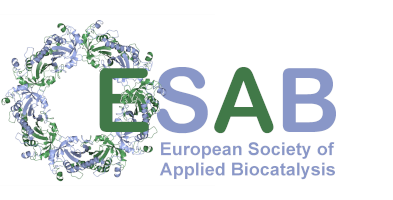The use of systems biology in treatment of liver diseases
Abstract
To develop novel strategies for prevention and treatment as well as to gain detailed insights about the underlying molecular mechanisms of liver diseases, it is vital to study the biological functions of liver and its interactions with other tissues and gut microbiota. Biological networks can provide a scaffold for studying biological pathways operating in the liver in connection with disease development in a systematic manner. In my presentation, I will present our recent work where biological networks have been employed to identify the reprogramming in liver physiology in response to NASH/NAFLD. I will further discuss how this mechanistic modelling approach can contribute to the discovery of biomarkers and identification of drug targets which may lead to design of targeted and effective personalized medicine.
Key points of my presentation
- Omics technologies are used in detailed characterization of human liver tissue in health and disease states.
- Biological network models are functional tools for exploring and integration of multi-omics data.
- Systems biology uses a holistic and integrative approach for comprehensive analysis of the biological functions in healthy and diseased states
- Systems Biology approaches have been successfully employed in hepatology to identify biomarkers and drug targets.
- These integrative tools can be used for simulation of liver tissue functions and its crosstalk with other tissues for prediction of therapeutic and side effects.
About the Speaker(s)
 Prof. Dr.Adil Mardinogluis an expert in the field of Systems Medicine, Systems Biology, Computational Biology and Bioinformatics. He has been recruited as a Professor of Systems Biology in the Center for Host-Microbiome Interactions, King’s College London, UK where he leads a computational group. He also works as a group leader in Science for Life Laboratory (Scilifelab), KTH-Royal Institute of Technology in Sweden and led a team of 25 researchers working in the area of computational biology, experimentalbiology and drug development to develop new treatment strategies for Metabolic diseases, Neurodegenerative diseases and certain type ofcancers.Professor Mardinoglu received his Bachelor’s degree from Istanbul Technical University, Turkey in Electronic and Telecommunication Engineering and his Ph.D. from Waterford Institute of Technology, Ireland in magnetic drug targeting applications. He worked as a postdoctoral researcher at Trinity College Dublin, Ireland and Chalmers University of Technology, Gothenburg, Sweden. His recent research activities include the generationof the context-specific genome-scale metabolic models (GEMs) for humancelltypes including liver, adipose, muscle, heart, kidney and brain as well as certain types of cancer e.g.liver, kidney, colon, prostate and brain (glioblastoma) cancers. His research team also focuses on the integrationof GEMs with the other biological networks including regulatory, protein-protein interactions andsignaling networks.He employs comprehensive biological networks for revealing the molecular mechanisms of complex diseases, identification of novel biomarkers and drug targets and eventually developing efficient treatment strategies.Professor Mardinoglu has contributed to the creation of human tissue, subcellular and pathology atlas within the Swedish Human Protein Atlas program and cell atlas within the international Human Cell Atlas program. He has published around 100 research and review papers in different journals including Science, Cell Metabolism, Nature Communications, PNAS, Cell Reports, Molecular Systems Biology and EbioMedicine. He is also co-founder of three different biotech companies focusing on the development of novel drugs for fatty liver disease and different cancer types.
Prof. Dr.Adil Mardinogluis an expert in the field of Systems Medicine, Systems Biology, Computational Biology and Bioinformatics. He has been recruited as a Professor of Systems Biology in the Center for Host-Microbiome Interactions, King’s College London, UK where he leads a computational group. He also works as a group leader in Science for Life Laboratory (Scilifelab), KTH-Royal Institute of Technology in Sweden and led a team of 25 researchers working in the area of computational biology, experimentalbiology and drug development to develop new treatment strategies for Metabolic diseases, Neurodegenerative diseases and certain type ofcancers.Professor Mardinoglu received his Bachelor’s degree from Istanbul Technical University, Turkey in Electronic and Telecommunication Engineering and his Ph.D. from Waterford Institute of Technology, Ireland in magnetic drug targeting applications. He worked as a postdoctoral researcher at Trinity College Dublin, Ireland and Chalmers University of Technology, Gothenburg, Sweden. His recent research activities include the generationof the context-specific genome-scale metabolic models (GEMs) for humancelltypes including liver, adipose, muscle, heart, kidney and brain as well as certain types of cancer e.g.liver, kidney, colon, prostate and brain (glioblastoma) cancers. His research team also focuses on the integrationof GEMs with the other biological networks including regulatory, protein-protein interactions andsignaling networks.He employs comprehensive biological networks for revealing the molecular mechanisms of complex diseases, identification of novel biomarkers and drug targets and eventually developing efficient treatment strategies.Professor Mardinoglu has contributed to the creation of human tissue, subcellular and pathology atlas within the Swedish Human Protein Atlas program and cell atlas within the international Human Cell Atlas program. He has published around 100 research and review papers in different journals including Science, Cell Metabolism, Nature Communications, PNAS, Cell Reports, Molecular Systems Biology and EbioMedicine. He is also co-founder of three different biotech companies focusing on the development of novel drugs for fatty liver disease and different cancer types.
